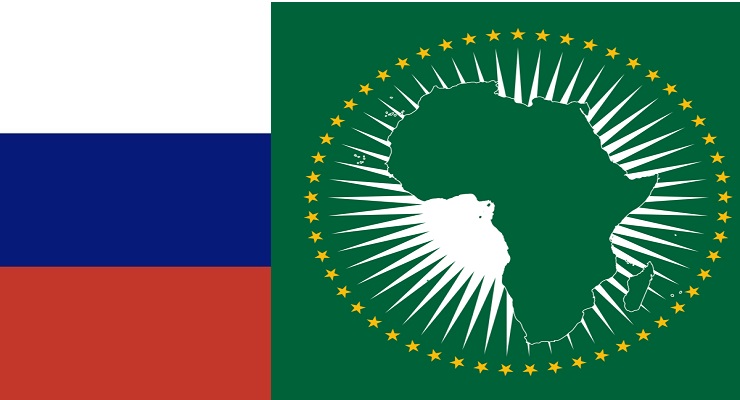 The Russia-Africa Summit in St. Petersburg, Russia, on 27–28 July 2023 should be presented as a “non-business as usual” event. However, this depends on whether the outcome acknowledges that the dialogue with Russia must be open and that there is a frank exchange of diverging views – which is certainly not ambitious. However, this will require a bold move by African member states to consider Russia as simultaneously a strategic partner, an economic competitor, and a systemic rival.
The Russia-Africa Summit in St. Petersburg, Russia, on 27–28 July 2023 should be presented as a “non-business as usual” event. However, this depends on whether the outcome acknowledges that the dialogue with Russia must be open and that there is a frank exchange of diverging views – which is certainly not ambitious. However, this will require a bold move by African member states to consider Russia as simultaneously a strategic partner, an economic competitor, and a systemic rival.
This enables Africa to cooperate with Russia in areas of its own interest that will lead to a multifaceted Russia policy. This approach is simply a compartmentalized one, including cooperation, mainly on global climate change issues like competition in international trade and investment and conflict over global governance architecture. The coexistence of different approaches to Russia leaves the floor open to contradictions among different individual African member states. However, with the summit more likely to revolve around the war in Ukraine and Africa’s individual states’ support of Russia’s President Putin’s regime, it reveals that the space for potential cooperation at the Russia-Africa Summit may have significantly shrunk. Africa cannot claim to be ignorant of what Russia’s party-state stands for.
Over the years, it has witnessed crackdowns on political, economic, and intellectual opposition, massive human rights violations directed against minorities, and continuous support for authoritarian regimes abroad. Russia’s domestic and international policies have resulted in a slow yet visibly changing Africa’s normative views on Russia, accelerated now by the Sino-Russian alliance.
These views are not be shared across the board of all member states, nor is there a consensus on how to react, especially when economic dependencies are at play. Yet the overall climate in Addis Ababa and a number of African capitals is undergoing a notable change. African Union (AU) members in North Africa (with the notable exception of Algeria) have long been disillusioned with the lack of tangible results. In the outset, the African authorities have voiced their concern about the possibility that war might principally benefit regime change agents throughout Africa. The conservative posture of most African states on the war in Ukraine will have been received differently at the regional level.
Afraid that the war in Ukraine can firmly encourage grievance-motivated instability in Africa, recently a delegation of African leaders and senior officials seeking ways to usher dialogue between Russia and Ukraine was nothing short of an “operation lemon” (a failed mission). In other words, despite a willingness to act, Africa’s involvement has been extremely gradual and devoid of any spectacular successes.
Most African states were relatively reserved in their reaction to the war and demonstrated a preference for maintaining the status quo and the “legitimate” Russian power prioritizing instability. This attitude marks a certain continuity in most African states’ rejection of what they see as the inclination of Western countries to support regime change in Russia.
Conclusion
This has been the case in certain countries (Serbia 1999, Iraq 2003, the Rose Revolution in Georgia 2003, the Orange Revolution in Ukraine 2004) and occasionally through the use of force. This also explains the recurrence of calls by African authorities for Western nations to stop intervening in the war in Ukraine.
Africa’s reaction can also be explained by the fear of an expansion of Eastern and Middle Europe political instability. They have also been concerned about Western nations’ hostile rhetoric towards countries that decided to pursue closer cooperation with Russia.
While the administrations of AU member states are preoccupied with the impacts of Russia’s invasion of Ukraine and the floods of refugees to the EU and the UK, China’s support of Russia will not go unnoticed on the continent. The China and Russia-skeptic African states that will attend the summit will be inclined to consider Russia on a par with China in terms of being an “all-weather friend” – in other words, they see Russia as an opposite to the “so-called” hostile, unpredictable, authoritarian regime as alleged by Western nations. This view will undoubtedly influence Africa’s agenda at the summit.
Leave a Reply